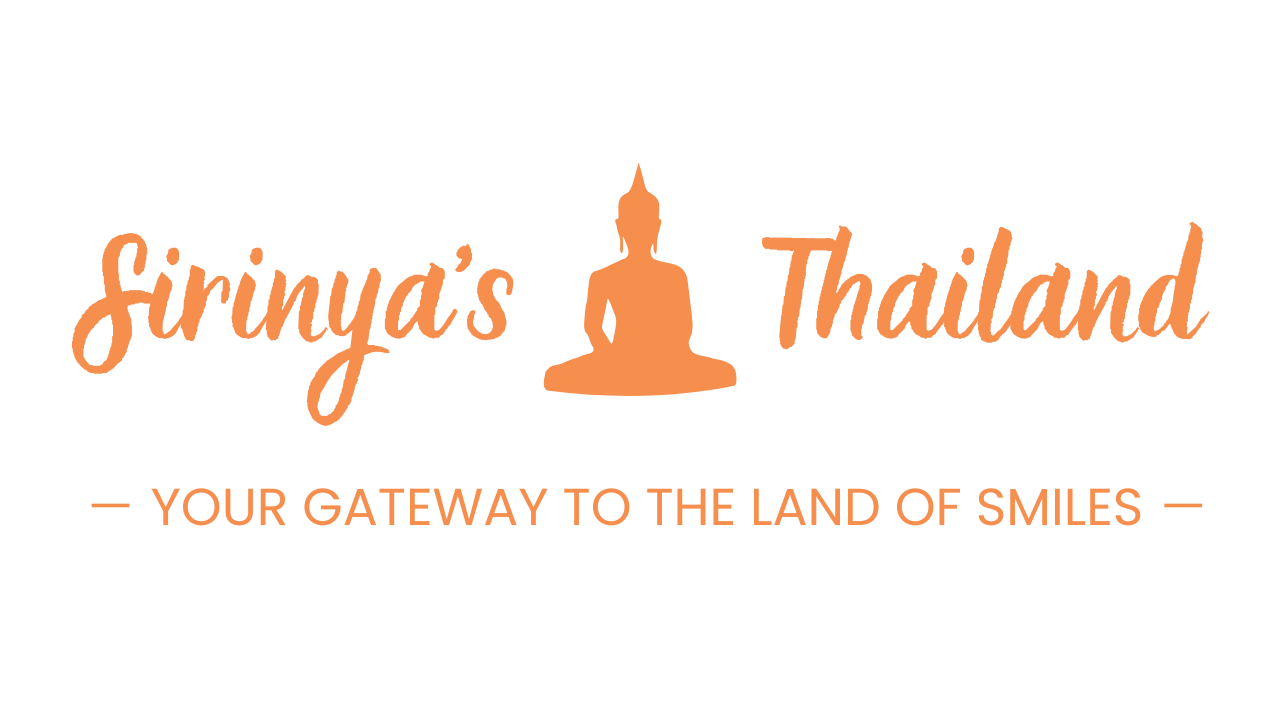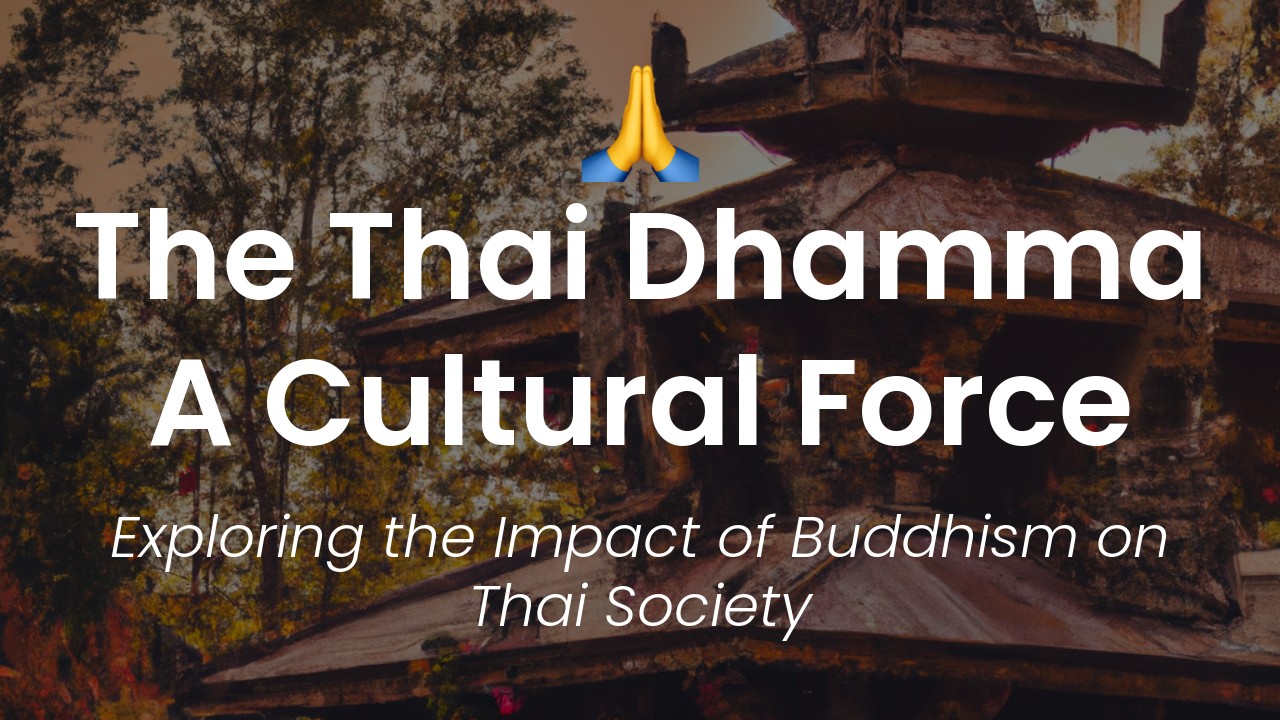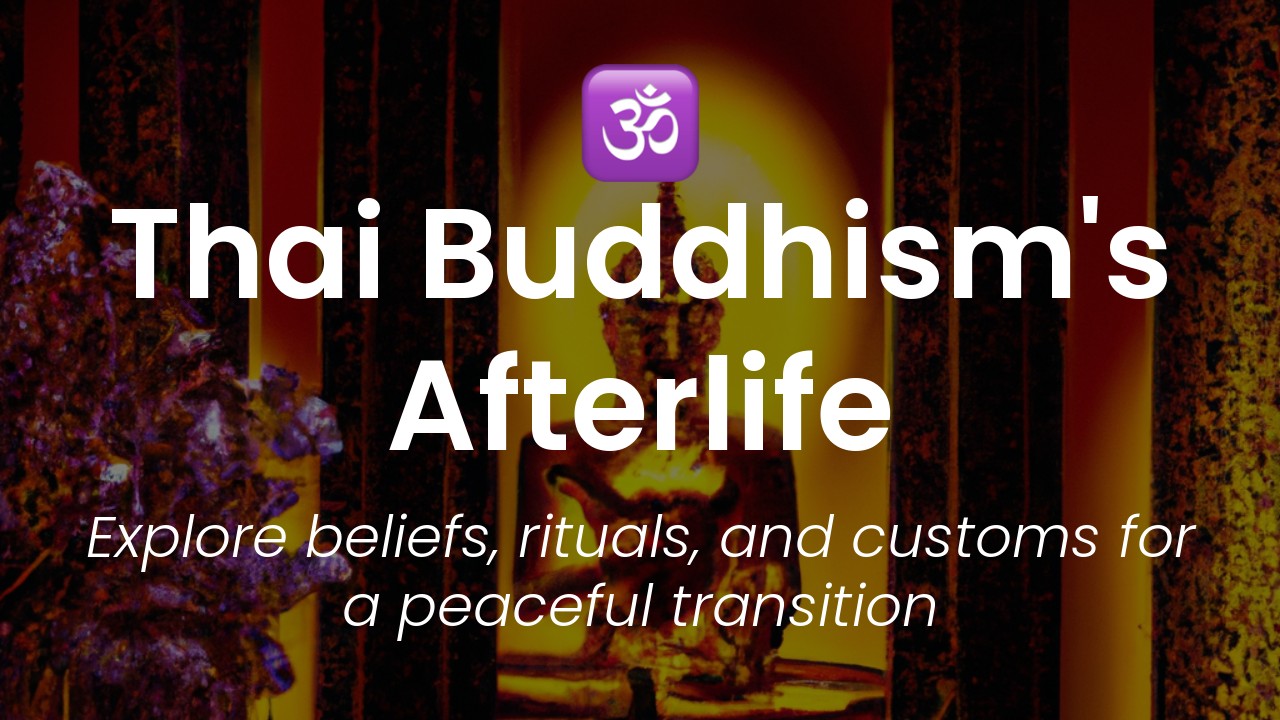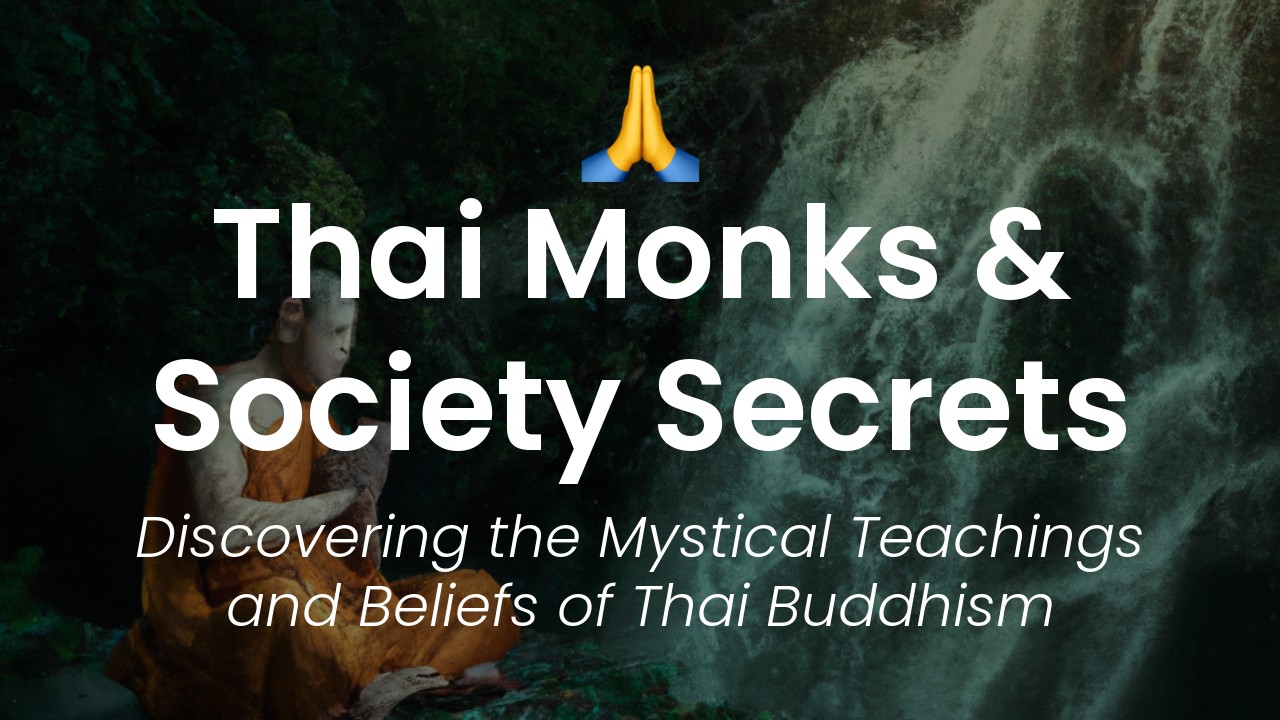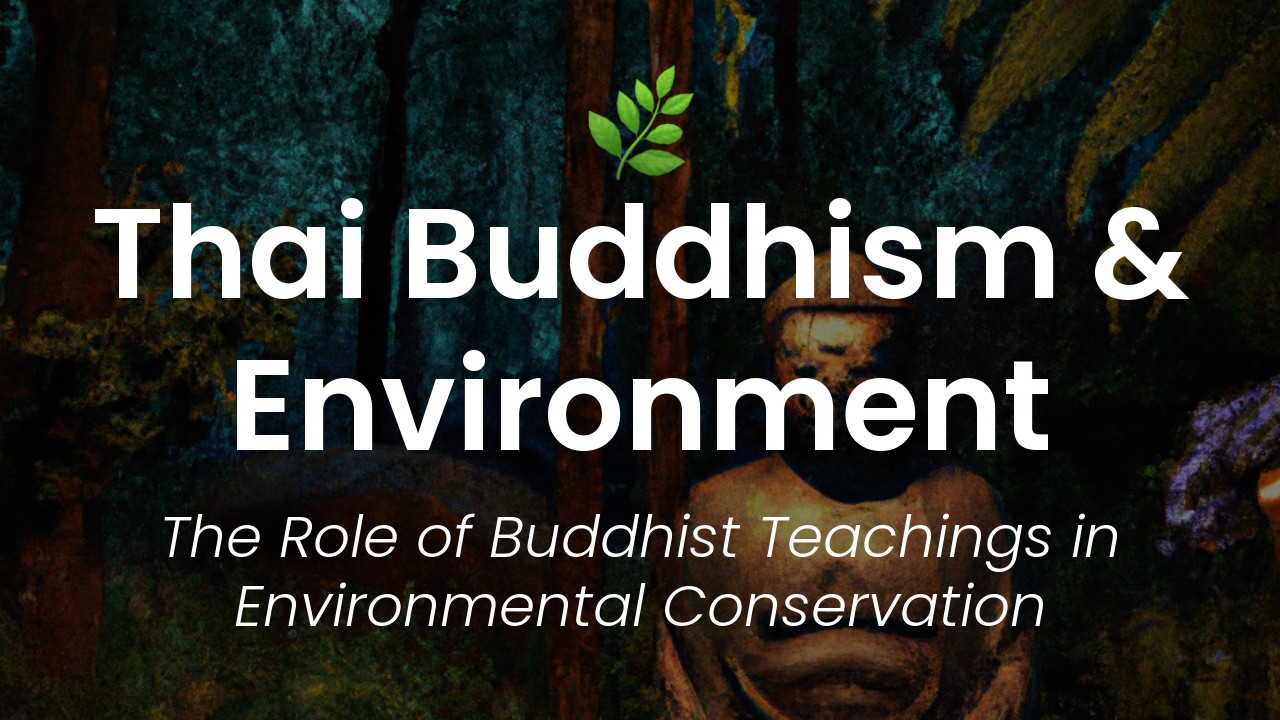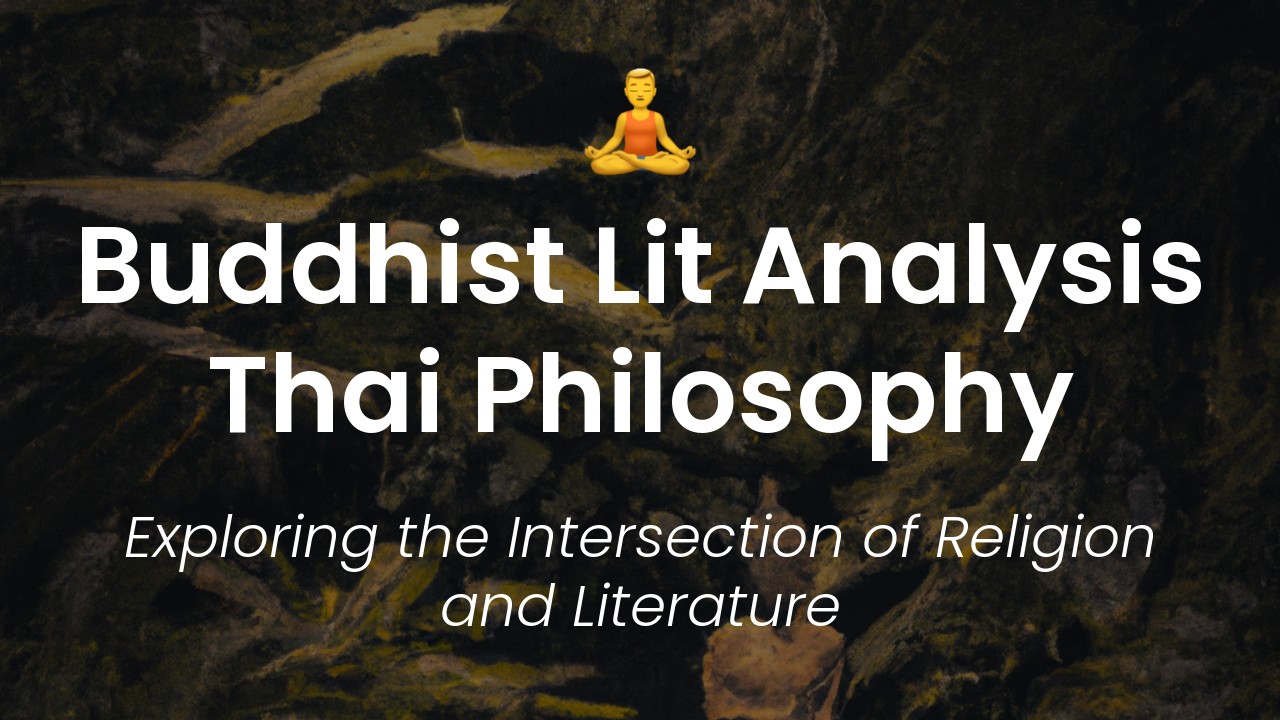Sawadee ka! I am Sirinya, and in this article, I will talk about the importance of Dhamma in Thai culture. Dhamma is a complex term that encompasses the teachings of the Buddha, his philosophy, and the principles of Buddhism. Buddhism is the dominant religion in Thailand, and its influence is apparent in every aspect of Thai life, culture, and tradition. In this context, Dhamma has shaped Thai society's values, norms, and practices and has made it significantly different from other cultures.
The Dhamma's influence is revealing in the way Thai people conduct themselves, their relationships, and how they perceive life and death. It has played a vital role in shaping Thailand's culture and history and has helped many Thais cope with life's challenges and maintain balance and harmony in their lives. The Dhamma has helped unify Thai society and has been instrumental in maintaining social order and discipline in the country.
In this article, I will explore the role of Dhamma in Thai culture and how it has shaped the country's traditions and practices. I will also look at how Thai people view the world and how Dhamma has influenced their perception. Through storytelling and sharing my personal experiences and insights, I hope to provide readers with a deeper understanding of the power of Dhamma in Thai culture. So, let's start our journey and explore the fascinating world of Thai culture together!
Historical Roots of Dhamma in Thai Culture
For centuries, Dhamma has been a guiding philosophy for many in Thailand. It stems from the teachings of the Buddha, who is widely believed to have achieved enlightenment under the Bodhi tree in Northern India over 2,500 years ago. The word Dhamma comes from Pali language, meaning "truth" or "teachings."
King Ashoka, the ruler of the Mauryan Empire in ancient India, played a vital role in spreading the message of the Buddha. After a violent battle, King Ashoka began to feel remorse for his actions. He turned to Buddhism and declared himself a devoted follower. Under his rule, the spread of Buddhism thrived, and it eventually made its way to Southeast Asia, including Thailand.
Thailand, formally known as Siam, was one of the first countries where Buddhism took hold outside of India. The faith arrived in Thailand over 2,000 years ago, and it has been an integral aspect of Thai culture ever since. For centuries, Thai kings and ordinary people alike have supported and promoted Buddhism, which has become an inseparable part of Thailand's cultural heritage.
Dhamma's Influence on Thai Art and Architecture
The influence of Dhamma is visible throughout Thailand's rich artistic legacy. From architecture to sculpture to painting, the concepts and teachings of Dhamma are present throughout Thai art.
One particularly striking example of Dhamma in Thai art is the architecture of Thai temples, or "wats." Most wats are designed around the concept of a central "bot," or shrine. Visitors to wats tend to circumambulate this central shrine, often chanting and meditating as they go.
Dhamma also plays a role in many of the sculptures and other artwork that adorns Thai wats. For example, Thai sculpture often depicts scenes from the Buddha's life. Other sculptures represent revered spiritual figures, such as the legendary Thai monk Phra Pathom Suriyawong.
Dhamma's Impact on Thai Society and Customs
In Thailand, Dhamma plays a critical role in shaping the culture and customs of the country. For many Thais, Dhamma is a way of life.
For example, Thailand is renowned for its elaborate festivals and ceremonies, many of which are steeped in Buddhist traditions. One such ceremony is Songkran, Thailand's New Year celebration. Songkran is a time for Thais to visit temples, make merit, and offer respects to the Buddha. Another example is Loi Krathong, or the "Festival of Floating Lanterns," which is celebrated each year on the full moon in November. During Loi Krathong, Thais release small floats made of banana leaves and flowers into rivers, symbolizing the release of negativity and the embracing of positive energy.
How Thai People Practice Dhamma in Daily Life
For many Thais, practicing Dhamma is a daily affair. Whether it's through meditation, chanting, or simply trying to act with compassion and kindness, Dhamma is an integral part of daily life in Thailand.
One common way that Thais practice Dhamma is through the act of offering alms to monks. Each morning, monks walk through towns and villages to receive offerings. For many Thais, this is an opportunity to make merit, gain spiritual benefit, and support the monkhood.
Another way that Thais practice Dhamma is through the act of chanting. Chanting can take many forms in Thailand, from reciting sutras to reciting mantras. For many Thais, chanting is a way to cultivate inner peace and connect with the divine.
The Role of Dhamma in Thai Education and Politics
Dhamma plays a significant role in both Thai education and politics. In the realm of education, Dhamma is often incorporated into the curriculum, providing students with a grounding in Buddhist philosophy and values. It's not uncommon for Thai schools to offer classes on topics such as meditation, compassion, and mindfulness.
In politics, Dhamma has played a crucial role in shaping Thailand's history. Many Thai kings, including the revered King Bhumibol Adulyadej, were devout Buddhists who actively promoted Dhamma throughout the country. Dhamma has also played a role in shaping the political landscape of modern Thailand, with various political parties and movements drawing inspiration from Buddhist principles.
Dhamma's Modern Relevance and Adaptation in Thailand
Despite its ancient roots, Dhamma continues to be a central part of Thai culture today. As Thailand has modernized, Dhamma has also adapted to meet the changing needs of modern Thais.
One example of Dhamma's modern adaptation is the rise of "urban meditation" centers in Thailand's major cities. These centers offer Thais living in urban areas the opportunity to learn meditation and other mindfulness practices, which can be especially valuable in the fast-paced, high-stress environment of modern cities.
The Future of Dhamma in Thai Culture and Beyond
As Thailand continues to evolve, the role of Dhamma in the country's culture and society is likely to change as well. However, it seems clear that Dhamma will continue to play a vital role in shaping the lives and values of many Thais for generations to come.
Beyond Thailand, Dhamma has the potential to make a positive impact on people all around the world. Through its promotion of compassion, mindfulness, and inner peace, Dhamma has the power to help people lead happier, more fulfilled lives, regardless of their cultural or religious backgrounds.
